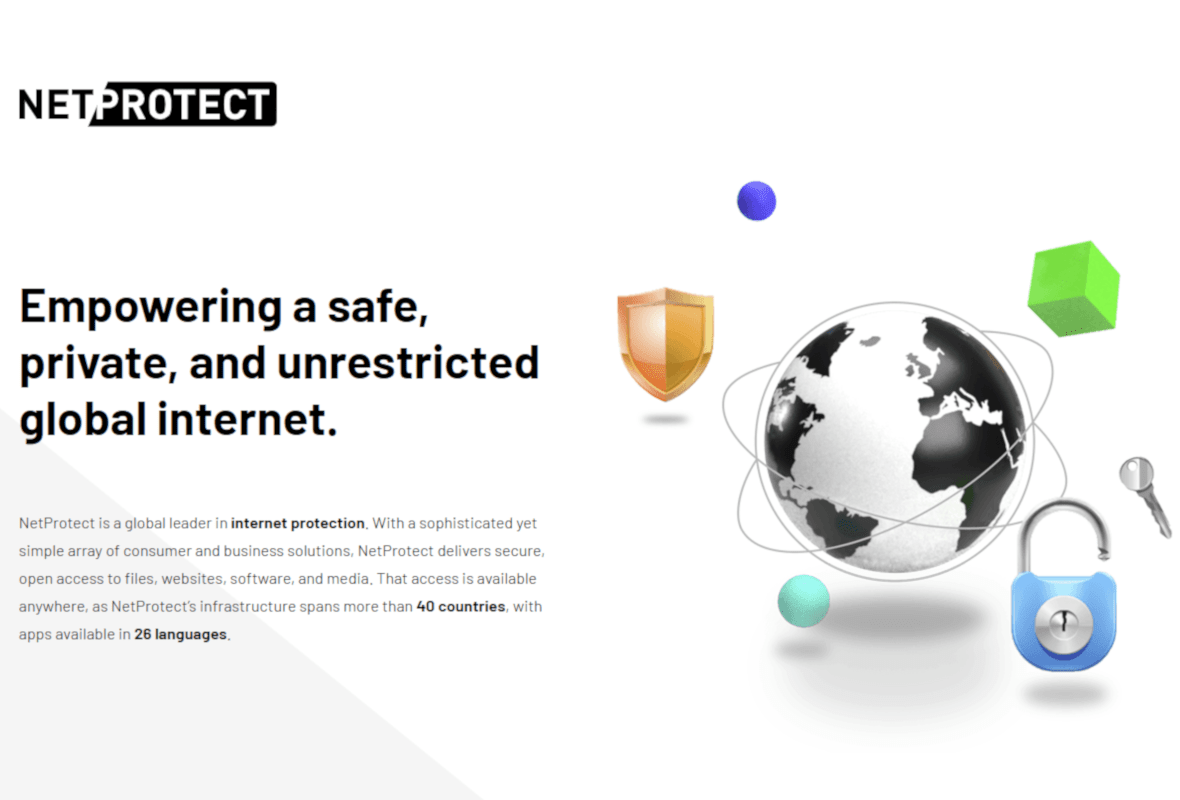Tech Giant J2 Global’s NetProtect Acquires SaferVPN
NetProtect, a subsidiary of internet information and services company J2 Global, has expanded its collection of VPN services to include SaferVPN

UPDATE: The SaferVPN service was shut down on 30 November 2023 after all of its users were fully migrated over to IPVanish, another VPN service owned by J2 Global. The company advised SaferVPN customers to use their existing account credentials log into any IPVanish VPN client software in order to use the remainder of their subscriptions.
NetProtect, which is part of J2 Global (owner of Mashable, eFax, Ookla Speedtest, and PCMag, among others), acquired SaferVPN on Tuesday 23 July for an undisclosed amount. This brings its total number of consumer VPN services to five.
In April 2019, J2 Global began buying various VPN products from content delivery network provider StackPath, including IPVanish, StrongVPN, and Encrypt.me.
NetProtect also owns consumer VPN and SmartDNS service OverPlay, WLVPN, a white-label VPN solution for businesses, and SugarSync, a secure cloud file storage service.
On its website, NetProtect describes itself as “a global leader in internet protection” that provides a “sophisticated yet simple array of consumer and business solutions” including “secure, open access to files, websites, software, and media.”
Writing about SaferVPN, NetProtect says: “The mission at SaferVPN is to provide secure, private, and uncensored internet access to anyone, anywhere.”
SaferVPN is yet to publish a press release or official blog post about the acquisition, but a member of its customer support team told us: “The NetProtect management team has long admired the product the team has built in SaferVPN. We look forward to learning a lot from that team and bringing additional resources to help push SaferVPN to the next level”.
The live chat support agent assured us that SaferVPN will continue to offer “the same high level service [sic]” and “same high level support [sic].”
It’s unclear whether SaferVPN’s operations will remain in Israel or be transferred to the US, where J2 Global is located. Neither are ideal locations for a VPN company: the US has some of the world’s most invasive privacy laws, while Israel is a known collaborator of the 14 Eyes Alliance.
The previous management team at SaferVPN is now focusing efforts on promoting its B2B VPN product Perimeter 81, which launched in 2018.
We criticized it not only for its US jurisdiction, but for underwhelming speeds, server connection issues, heavily restricted access to torrenting, and unreliable access to streaming services.
It once scored highly in our testing – users will surely be hoping that a change of ownership can restore SaferVPN to the product it once was, hopefully even surpassing it.
J2 Global VPN brands IPVanish and StrongVPN are two very dependable products we’ve tested, and perform consistently well in our regular subsequent checkups.
StrongVPN allows a very generous 12 simultaneous connections and has an excellent logging policy, while IPVanish is an excellent VPN in general – but particularly for streaming.
StrongVPN and IPVanish were functionally unaffected following their acquisition by J2 Global earlier this year.
What Does this Acquisition Mean for J2 Global’s VPN Portfolio?
It may not be the most helpful answer, but it’s really too soon to say – there’s a wide range of possibilities.
Ideally, the acquisition of yet another VPN brand means that J2 Global’s various products play off of each other, the strengths of one helping to fill out the weaknesses of another.
That said, there’s every chance that the products continue to operate in total isolation of one another. While we’d love to see improvements to SaferVPN’s infrastructure (resulting in boosts to its speeds, server network and the like), there’s no guarantee that any extra resources will be shared with or allocated to the service.
Conversely, with four marquee consumer VPNs under its belt J2 Global may choose to gradually align the products before merging them into one, consolidating all its users in the process.
While they may not be the most popular VPNs on the market (at least compared to services like NordVPN or ExpressVPN), such a consolidation would instantly make the newly-formed service one of the largest in existence. Such decisions are rarely popular, though, and require a huge amount of money and man hours – it seems unlikely that J2 Global would choose to interfere with a setup that is evidently working very well for it.
For the most privacy-conscious users, though, this merger may be raising red flags for a very different reason. One of the most popular reasons for using VPN software is privacy and security: the peace of mind that your most personal data is no longer accessible by an overreaching government or an unscrupulous ISP, instead laying in the hands of a small team of vetted, professional privacy advocates.
But what happens when that small team is no longer so small? J2 Global is a billion-dollar company with thousands of employees. At what point is trusting a VPN with your data no better than trusting a company like Google or AT&T with it? This is no indictment of the current state of J2 Global, which has run its products admirably so far, but the monopolization of the VPN industry is a legitimate concern.